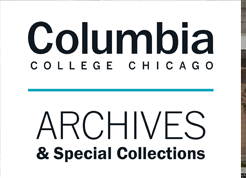Dr. Micah Salkind is the Deputy Director of The City of Providence Department of Art, Culture, and Tourism and Adjunct Assistant Professor of Humanities in the Department of American Studies at Brown University. As part of his work, he collaborates with large non-profit cultural institutions as well as emerging artists, designers, and creative entrepreneurs. He also serves on the boards of the Providence Public Library and Community MusicWorks and is an ongoing collaborator with dancers and scholars in Chicago’s Honey Pot Performance collective and Matthew Cumbie Projects’ “Growing Our Own Gardens” initiative.
A DJ, sound designer, and curator, he is the author of Do You Remember House? Chicago’s Queer of Color Undergrounds for which these oral history interviews were collected. The work "historicizes house music, the rhythmically focused electronic dance sound born in the post-industrial maroon spaces of Chicago's queer, black, and Latino social dancers. Working from oral history interviews, archival research, and performance ethnography, it argues that the remediation and adaptation of house by multiple and overlapping crossover communities in its first decade shaped the ways that contemporary Chicago house music producers, DJs, dancers, and promoters re-remember and re-animate house as an archive indexing experiences of queer of colour congregation."
Currently, the audio files and biographical information are available; transcripts will be added when complete.
-

Interview with Craig Loftis
Micah Salkind
Craig Loftis began DJing in Chicago in 1979. He attended Columbia College and earned a degree in Art and Entertainment Management and Sound Engineering. In 1983, Loftis redesigned the lighting and sound systems for Jim Flint’s Baton Show Lounge and the Re Doubt. He also redesigned the sound system for Frankie Knuckles’ Power Plant, and became Knuckles’ personal sound engineer, opening DJ and general manager for the next four years. In 1988, Loftis was offered the position as chief engineer in charge of production for DJ International Records where he remained for the next eight years. In that time Craig engineered, mixed and produced songs for Fast Eddie, Tyree Cooper, Julian Perez, Badboy Bill, Frankie Hollywood Rodriguez, Joe Smooth, Sterling Void, Paris Brightledge and Mike Dunn. In 2000 Loftis started a new promotion company, Loftwerk Productions, working with Loleatta Holloway, Ava Cherry, Sharon Pass, Darryl Pandy, Byron Stingley, Rochelle Flemming, Georgy Porgy and Martha Wash. He also became a member of the Slang Music Group, mixing tracks for Pink, Kelly Price, Sisco, R-Kelly, Ruff Endz, Backstreet Boys and Whitney Houston.
In 2004 Loftis decided to reinvent himself and release his inner spirit and thus GRAND HIGH PRIEST was born. Soon after he released his worldwide hit “Mary Mary.” He remains a powerhouse on Chicago’s dance music scene.
-

Interview with Dana Powell
Micah Salkind
DJ Dana Powell grew up during the 1960s in Gary, Indiana, where he participated in school music ensembles in addition to getting involved in some theatrical dancing through programs like the Gary John Will Anderson Boys Club. Powell was instantly drawn to the thick orchestral arrangements of tunes like Barry White’s “Love Theme,” which his school band performed during a spring concert. In his first year of college, he recalls going to the Crystal Tower Disco and hearing Kraftwerk’s “Trans-Europa Express.” These two strains of what came to be called disco, synth-driven electronic music and Gamble & Huff/Sigma Studios’ orchestral funk, inspired Powell to become an avid record collector and a prolific DJ. During his decade-spanning career he performed at such lauded gay venues as Chicago’s Stop and Drink, but it was his longterm residency at the Generator that made him a local favorite, and a regional tastemaker (he was even lucky enough to get on the exclusive Strictly Rhythm mailing list). Powell DJ’d the Generator’s legendary disco Wednesdays (in rotation with founder Tyrone Mixx), as well as current house hits through the ‘90s until the Generator closed. Today he laments that the city’s DJs don’t support each other like they once did in Chicago, recalling fondly the days when he could call up on his fellow spinners to enjoy their hospitality on a night off.
-

Interview with Darlene 'Lady D' Jackson
Micah Salkind
Darlene Jackson aka DJ Lady D, was written about as “Chicago’s House Music Queen” by Chicago Magazine. She performs charismatic sets of dance music for fan-filled, influencer, charity and celebrity events throughout the world, including appearances at Wanderlust, Noise Pop, Westfest, Summerdance, Chosen Few, SXSW & Lollapalooza festivals. DJ Lady D has DJ’ed, toured and collaborated on music projects since 1995. A media darling featured in print, tv, and digital, including a Chicago Public Library ad campaign, she has hosted and produced for radio and also appears on film in the documentaries, Slipcue, Godfather of Disco, The Boompty Boompt Man, and Girl. In 2016, Lady D was featured alongside Chaka Khan, Nile Rodgers and others in the long-awaited book, “Disco Demolition” (about the infamous event) and began curating a popular monthly spin-off event in Chicago known as Disco’s Revenge where you can see her and invited guests performing live once a month at Arbella. Lady D has managed D’lectable, her music label and events marketing company since 2004. She’s also on the radio the last Friday of every month on Vocalo.org 91.1 FM-Chicago. She received a Master’s Degree from Northwestern University in 2016 and is currently advising students and curating events as a Creative Industry Liaison for The Career Center at Columbia College Chicago.
-

Interview with David Adams
Micah Salkind
Dancer David Adams grew up in the Uptown neighborhood of Chicago in a family of movers - dancers, musicians, and athletes. Influenced by choreographers of the 1980s, especially those who developed bboy repertoires in the breakdancing films of the era, he came of age as a club dancer at Medusa’s, listening to resident DJs like Psychobitch and Terri Bristol, and later evolved his club dancing practice at Red Dog and Smart Bar.


